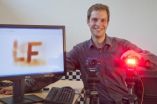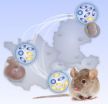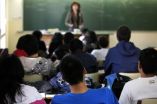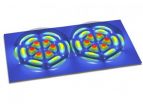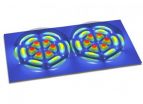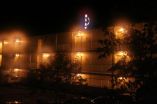(Press-News.org) Non-vocational adult education drawing on a person's own motivation comes with a variety of benefits that are also reflected on the person's close friends, family and work. Studying boosts self-confidence and well-being, and expands social networks. Furthermore, motivation to pursue other studies also increases. Thanks to participation in adult education, tolerance towards and confidence in other people grows, and adult learners pay increasing attention to their health. Parents are better able to support the studying of their school-aged children.
All of the above are findings from the Benefits of Lifelong Learning (BeLL) project carried out in ten European countries. The study focused on liberal adult education, i.e. non-vocational courses, which are characterised by voluntariness, self-motivation, and goals related to hobbies. The study investigated the changes experienced by adult learners participating in liberal adult education courses during a course of one year.
In addition to the positive changes described above, some of the participants also identified changes in work and career opportunities, as well as in factors supporting active citizenship, such as increased interest in doing voluntary work. Studying also creates an abundance of new areas of skill and expertise.
Adult education was the most beneficial for learners with a lower educational level. Liberal adult education can bridge the gap between social groups with different educational backgrounds and it can balance the uneven learning opportunities experienced in childhood and adolescence. The increase in learning motivation and self-confidence increases the probability of those with a lower educational level in particular to engage in adult education also in the future. Learning related to a person's hobby thus serves as a low-threshold opportunity to participate, and may inspire the person to participate in further learning activities.
Adult learning also carries different meanings for different age groups: for younger age groups, liberal adult education serves as a stepping-stone to society by increasing the feeling of being able to control one's life. For older age groups, on the other hand, it softens the transitions related to ageing, such as retirement, losing one's friends or family members, and deteriorating skills.
The study also paints a good picture about how liberal adult education courses are offered and organised in different countries. With the exception of Finland, statistical data on liberal adult education is poorly available and the activities often lack a clear organisation, making the role of liberal adult education in educational policy and academic research less prominent than that of vocational non-formal education. The study puts forward policy recommendations proposing that liberal adult education should be better taken into consideration both in national and EU-level education policy, and that a more systematic approach should be taken towards the utilisation its clear benefits on well-being.
The study was carried out within the Lifelong Learning programme of the European Commission (Studies and Comparative Research, KA1), and it involved a network of 11 partners: three universities, three research institutes and five adult education organisations. Data was collected in Finland, Spain, England, Germany, Switzerland, Italy, the Czech Republic, Slovenia, Romania, and Serbia. The University of Eastern Finland was responsible for the collection and analysis of the survey data, and the project was coordinated by DIE (Deutsches Institut für Erwachsenenbildung) in Germany.
INFORMATION:
For further information, please contact:
Professor Jyri Manninen, jyri.manninen(at)uef.fi, tel. +358503815359
http://www.bell-project.eu
Publication:
Manninen, J, Sgier, I., Fleige, M., Thöne-Geyer, B., Kil, M., Možina, E., Danihelková, H., Mallows, D., Duncan, S., Meriläinen, M., Diez, J., Sava, S., Javrh, P., Vrečer, N., Mihajlovic, D., Kecap, E., Zappaterra, P, Kornilow, A., Ebner, R. & Operti, F. (2014). Benefits of Lifelong Learning in Europe - Main results of the BeLL-project. Bonn: DIE. http://www.bell-project.eu/cms/?page_id=10
Self-motivated participation in learning activities increases the well-being of adults
2014-06-17
ELSE PRESS RELEASES FROM THIS DATE:
With light echoes, the invisible becomes visible
2014-06-17
Scientists at the University of Bonn and the University of British Columbia (Vancouver, Canada) have developed a novel camera system which can see around the corner without using a mirror. Using diffusely reflected light, it reconstructs the shape of objects outside of the field of view. The researchers will be reporting their results at the international Conference for Computer Vision and Pattern Recognition (CVPR) from June 24-27 in Columbus (Ohio, USA).
A laser shines on the wall; a camera watches the scene. Nothing more than white ingrain wallpaper with a bright spot ...
Three parents and a baby
2014-06-17
Mitochondria are cell organelles located within animal and human cells. They produce energy for the organism, possess their own genetic material - mitochondrial DNA (mtDNA) - and are transmitted exclusively by the mother. Depending on their activity and tasks, different numbers of mitochondria are present in a cell - usually a few hundred to a thousand per body cell.
Inherited mitochondrial disorders or so-called mitochondropathies occur in about one of 10,000 humans throughout the world. Diseases such as diabetes, stroke, cardiac defects, epilepsy, or muscle weakness ...
Chemical pollution of European waters is stronger than anticipated
2014-06-17
This news release is available in German.
Substantial improvements in freshwater quality by 2015 have been a declared objective of the EU member states, manifesting itself by the requirements of the Water Framework Directive (WFD). A recent study conducted by the Institute for Environmental Sciences Landau together with the Helmholtz Centre for Environmental Research (UFZ) and fellow scientists from France (University of Lorraine and EDF) and Switzerland (Swiss Federal Institute of Aquatic Science and Technology - EAWAG) shows that this target is unlikely to be ...
Social inequality intensifies amongst low-scoring pupils
2014-06-17
Children's marks at school influence the likelihood of them abandoning their studies, but the effect varies according to their social background: among students with poor marks, those from a higher social class have more opportunities to raise their marks than children of low-skilled workers. This is according to a study carried out by researchers from the National University of Distance Learning (UNED) and the European University Institute.
"The study deals with dissociating the effect of the marks (considered the 'primary source' of educational results) from other processes ...
Strange physics turns off laser
2014-06-17
Inspired by anomalies that arise in certain mathematical equations, researchers have demonstrated a laser system that paradoxically turns off when more power is added rather than becoming continuously brighter.
The finding by a team of researchers at Vienna University of Technology and Princeton University, could lead to new ways to manipulate the interaction of electronics and light, an important tool in modern communications networks and high-speed information processing.
The researchers published their results June 13 in the journal Nature Communications (Ref. 1).
Their ...
Study: In wild yak society, moms are the real climbers
2014-06-17
NEW YORK (June 17, 2014) – A new study led by the Wildlife Conservation Society says that in wild yak societies, it's the mothers that are the real climbers. The study found that mothers with young venture on steeper terrain and slightly higher elevation than either males or females without young.
The authors of the study expect that this strategy is an adaptive way to avoid predators and to access more nutritious food. Wild yaks are an endangered species occurring only on the Tibetan Plateau and closely related to North American bison.
The study, which appears in ...
Promising T cell therapy
2014-06-17
This news release is available in German. The cells of the human immune system are created from special stem cells in the bone marrow. In diseases affecting the bone marrow, such as leukemia, the degenerate cells must be destroyed using radiation or chemotherapy. Subsequently, the hematopoietic system has to be replaced with stem cells from the blood of a healthy donor. Because of the resulting temporary weakening of the immune system, patients are more exposed to viruses that would normally be warded off.
The cytomegalovirus (CMV), which can cause serious damage to ...
Laser physics upside down
2014-06-17
This news release is available in German.
Sound waves fade, water waves ebb, light waves are dissipated by a wall. The absorption of waves is a very common phenomenon. But only recently have physicists realized that amazing new possibilities are opened up, when this energy loss, rather than being seen as an annoying nuisance, is actually considered a desired effect. At the Vienna University of Technology, a system of two coupled lasers has been created, in which wave dissipation leads to a behaviour completely contrary to intuition: additional energy can switch it ...
Research at Granada finds that the eye's optical quality deteriorates after alcohol consumption
2014-06-17
A study conducted by the University of Granada has scientifically proven that alcohol consumption markedly impairs night-vision because it increases the perception of halos—luminous circles—and other visual night-time disturbances. Moreover, this deterioration of vision is significantly greater in subjects with breath alcohol content in excess of 0.25mg/litre—the legal limit for driving in Spain and other countries and, also, that recommended by the World Health Organization (WHO).
Researchers from the Laboratory of Vision Sciences and Applications conclude that alcohol ...
Does the moon affect our sleep?
2014-06-17
Popular beliefs about the influence of the moon on humans widely exist. Many people report sleeplessness around the time of full moon. In contrast to earlier studies, scientists from the Max Planck Institute of Psychiatry in Munich did not observe any correlation between human sleep and the lunar phases. The researchers analyzed preexisting data of a large cohort of volunteers and their sleep nights. Further identification of mostly unpublished null findings suggests that the conflicting results of previous studies might be due to a publication bias.
For centuries, people ...
